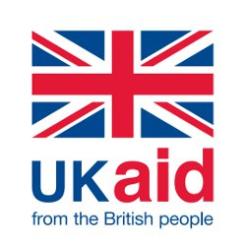Some sub-Saharan countries could "graduate from external assistance altogether in the not-too-distant future" international aid charity One claims in its 2012 Data Report.
One said that due to a $14.71bn increase in development assistance to sub-Saharan Africa between 2000 and 2010 several countries have now graduated to middle-income status and if a programme of 'smart aid' continues, they could stop requiring any external assistance at all.
While such countries have seen substantial improvements in infrastructure, education, agricultural production, healthcare and economic growth there are still significant investment requirements in these areas in order to secure stability. "The donor community, particularly EU member states, need to maintain the current course and meet existing commitments to ensure that this possibility is achieved, because smart aid still plays an essential catalytic role in economic development," the charity advised.
Aid slows for first time in a decade
But the charity warned that for the first time in a decade global levels of development assistance declined in 2011 and many countries are far from reaching their Millennium Development Goals of spending 0.7 per cent of their gross national income on official development assistance (ODA) by 2015.
The Department for International Development (DFID) in the UK recently announced that it may extend the period in which it cements the UK's commitment in legislature from 2013 to 2015, raising concerns from aid charities that the government is slackening its commitment.
Claire Godfrey, Oxfam senior policy adviser, said: "We are disappointed the government has again put off its pledge to legislate to safeguard Britain's aid commitments. Enshrining in law our promises to the poorest is vital to ensure they do not fall victim to future politicking - there can be no excuse for further delay."
However both Oxfam and One have praised DFID for maintaining its pledge to the Millennium Development Goals where other countries have failed.
UK has shown 'remarkable political courage'
The 2012 Data Report assesses Europe's progress in keeping its promises on aid. It advised that four EU countries have already met their 0.7 per cent pledge (Luxembourg, Denmark, Sweden and the Netherlands) while it praises the UK for "impressive leadership and remarkable political courage through its efforts to achieve the target" and Ireland for remaining committed "despite exceptionally tough times".
The UK currently delivers 0.55 per cent of its gross national income towards international aid, with a total of €9.75bn spent last year. This was down 0.8 per cent on last year but from 2004 - 2011 the UK has seen the greatest increase in aid spending of all of the EU15 member states, an increase of €4.421bn. This can also be compared to the United States, which currently provides 0.2 per cent of its gross national income to ODA and over the same period increased spending by €4.912bn.
DFID has predicted that the UK will reach its 0.7 per cent pledge next year but with a target of €13.11bn on ODA by 2015 it will have to increase spending by €3.35bn to meet its Millennium Development Goal. And while its spending in Africa increased by 5.3 per cent to reach £3.75bn as part of a global commitment to increase aid spending in the continent to 50 per cent of ODA, the UK remains short of this target and is encouraged with other EU15 members by One to step up its African spend.
But overall One praised the UK's efforts, saying that "in particular [the UK] has championed aid transparency and has helped persuade other countries to sign up to the IATI standard, to which it already publishes. It is one of the best-performing EU donors assessed in the QuODA index, and ranks in the top ten of the 31 countries assessed in each othe the four QuODA dimensions. All UK aid has been untied since 2002."
New UK aid branding
Yesterday DFID announced a new branding identity which will appear on all UK aid sent abroad. The UK aid logo which features the Union flag will now appear on items such as grain packets, schools and water pumps to "drive home the message that Britain deserves credit for the amazing results that UK aid delivers".
The branding was announced as DFID released its annual report documenting its achievements over the past two years which include supporting 5.3 million children (2.5 million of them girls) to go to primary school, vaccinating over 12 million children against preventable diseases, reaching six million people with emergency food assistance and improving the land and property rights of 1.1 million people.
Andrew Mitchell, International Development Secretary, said: "Over the last two years, aid from Britain has quite simply transformed the lives of millions in the world’s poorest countries. I believe that these are results of which everyone in the United Kingdom can be proud."
Speaking at a Build Africa reception for the International Day of the African Child, Mitchell reaffirmed the Department's commitment to spending on aid and told an audience of private sector professionals: "For under 1 per cent of our national income, we are able to do the right thing, which our generations can do something about - these colossal discrepancies of wealth and opportunity which exist in our world today."
He added that it also meant the UK is "doing something which helps build our own future prosperity and security as well as those we are trying to help".









